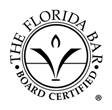florida criminal defense lawyer
Our Law Firm helps you understand the Criminal Law Process
If you or a loved one has been arrested and/or accused of a crime, it is important that you know what to expect and what to do. Attorney L. D. Murrell was been helping criminal defendants for more than 25 years. Criminal Defense litigation is complex and sometimes confusing. An experienced criminal defense lawyer like Murrell will understand the law as it relates to the crime you’ve been charged with, and will be able to help you make informed decisions as your case moves through the process. Here is a high-level look at the Criminal Defense Process:
Arrest & Booking – In order to be arrested, there must be probable cause. This means there is reasonable belief that a crime was committed and you committed the crime. An arrest warrant is not necessary. You have constitutional rights under the Miranda Rule (right to remain silent, right to an attorney) and you must be informed of these rights before interrogation begins. After you are arrested, the police will bring you to the police station for booking where you will be searched and fingerprinted. See the Legal Rights page for more details on your civil rights.
First Appearance – You will appear before a judge within 24 hours of your arrest. A judge will advise you of the charge(s) you have been arrested for. The judge will decide if there is sufficient legal basis for the arrest (probable cause). You should not make any statements at this hearing. The judge will also ask you if you wish to be represented by a lawyer and if you have hired a personal attorney or need one appointed by the courts. The judge will then decide if pre-trial release (bail) is appropriate and how much.
Formal Charges – Just because you are arrested doesn’t mean you will be formally charged. The State Attorney’s Office or U.S. Attorney’s Office reviews your case facts and decides if formal charges will be filed. Depending on the charge and circumstances (misdemeanor or felony offense), prosecutors have various legal timetables in which to file formal charges.
Arraignment – If formal charges are filed by the State Attorney’s office or U.S. Attorney’s Office, an arraignment will be scheduled. This is not a trial but the charges against you will be read and you will be required to enter a plea (not guilty, guilty, or no contest). In state cases if you retained a lawyer, your attorney will do this for you. If this is a federal case, you must be present. At this time a judge will set a pre-trial and trial date.
Case Preparation – During this stage, your lawyer works with you to get the facts of the case and identify and interview witnesses. Your attorney will begin the discovery process and file motions to obtain State witnesses, police reports, etc., so he or she may begin strategically building your defense strategy. Anything you say to your lawyer is confidential. If you speak to anyone else about the case it is not confidential. It is very important that you are truthful and honest, listen to, work with and cooperate with your attorney at all times. Your lawyer is there to protect your civil rights and see that you get the best possible outcome for your situation.
Trial – This is where a judge presides over the courtroom proceedings and decides the questions of the law, and a six-person jury or a twelve-person jury of your peers (depending on case type) will hear the evidence presented and must unanimously determine whether you are guilty or not guilty of the crime(s) charged. If found not guilty the charges are dismissed and you are free to go. If you are found guilty a sentencing hearing will be scheduled. If the jury is unable to reach a unanimous verdict, then a mistrial is announced and the case will be reset for trial at a later date.
Sentencing Hearing – This hearing takes place after a plea or a jury has found the defendant guilty, and a judge determines the defendant’s sentence. Basic sentencing options can include incarceration (prison), probation and house arrest. If the convicted person violates any of the probation rules or special conditions set by the judge, the judge may revoke probation or sentence the person to prison.
Appeal – If you are convicted of a crime, you are legally entitled to directly appeal your case to a higher court unless you waived that right. There are specific requirements and deadlines for state and federal appeals filings. Your criminal defense lawyer will explain the stated reasons for the appeal that you can use for your case, and how the appeal process works.
Post-Conviction – Post conviction litigation differs from a direct appeal in that it is not an entitlement and defendants typically obtain an attorney of their choice to represent them. Once your sentence is final and you’ve exhausted the appeals process, a post-conviction is literally your last chance to try and impact your sentence. Post conviction usually involves a case where there was ineffective legal counsel or there is new evidence that has been discovered. There are time limitations in which to file and there are specific and limited criteria for requesting a post conviction hearing. Check with your criminal defense lawyer to see if your case can be consider for post-conviction relief.
_____________________________________________________________________________
This is basic, limited information on the criminal law process, and each client and situation is different and unique. To ensure that the process if followed legally, effectively, and ethically on all sides, contact an experienced Florida criminal defense law firm. Donnie Murrell is a Florida Bar Board Certified Criminal Defense Lawyer and serves all of Florida including these counties: Palm Beach, Martin, St. Lucie, Indian River, and Okeechobee County, handling both state and federal criminal matters.











